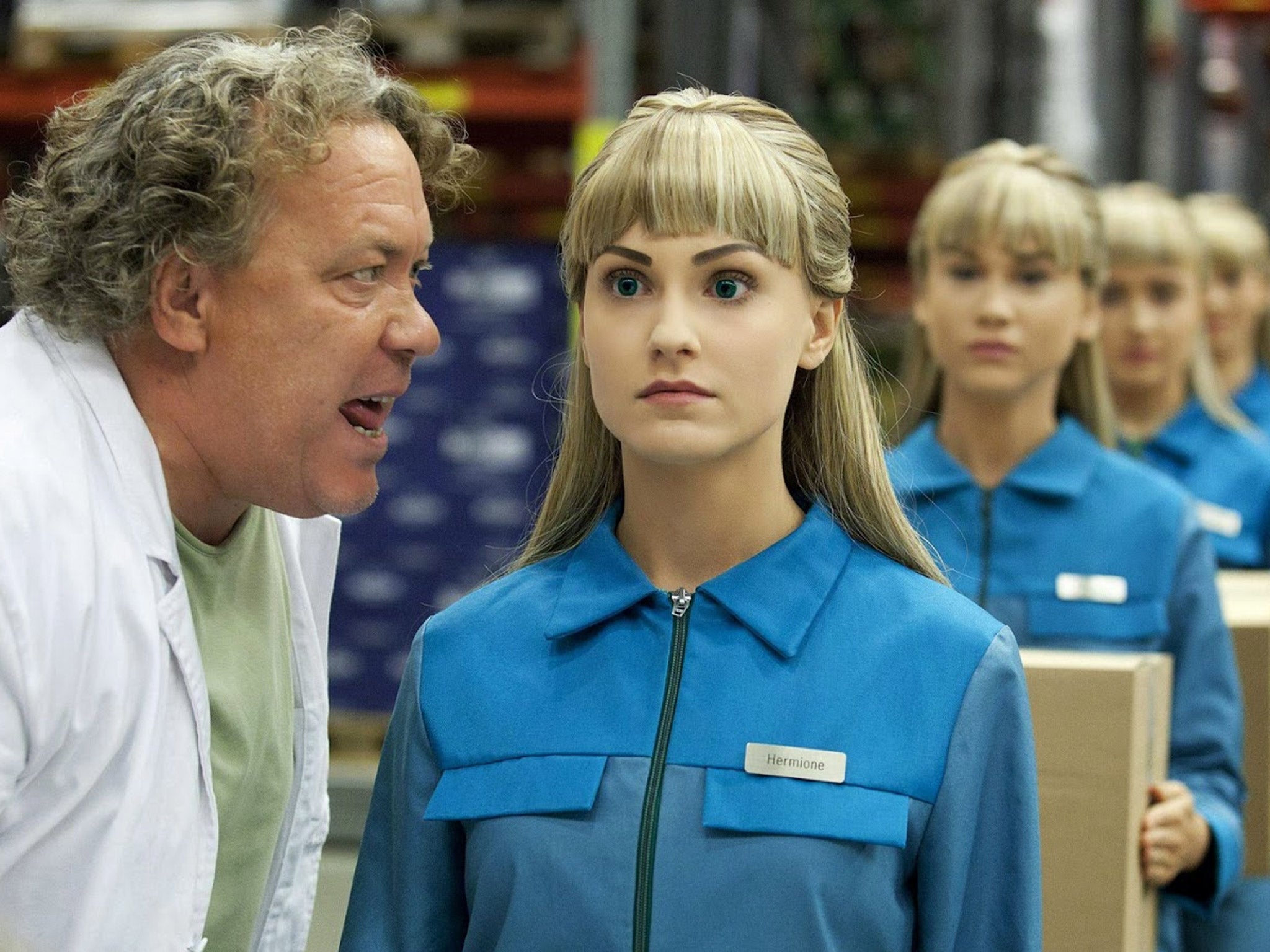Real Humans: Are the robots taking over?
In a hit Swedish TV drama, soon to be remade in English, lifelike robots do the all the dirty work. Pure science fiction, wonders Gerard Gilbert – or a glimpse of the future?

With The Killing and Borgen finished, Wallander having bowed out on BBC4 last Saturday and just one more series of The Bridge, the sun seems to be setting on a golden age of Scandinavian television. There is, however, one show that has been denied to us in the UK and that's the Swedish sci-fi drama Real Humans, despite two series having been screened to great acclaim in at least other 50 countries.
Real Humans imagines an alternate version of modern-day Sweden in which life-like androids, known as "hubots", take care of the domestic and workplace drudgery. They have flawless skin, glossy hair and unnaturally bright (usually blue) eyes – and they look rather like Valeria Lukyanova, the cosmetically enhanced Ukrainian model and YouTube sensation known as the "real-life Barbie". As the sheepish husband of a hard-working lawyer tells his children as he unpacks "Anita", a similarly plastic-fantastic rechargeable domestic servant: "I haven't told Mum yet." Mum's comment, on clapping eyes on Anita, is short and to the point: "No way!"
Husbands and wives threatened by the arrival of these attractive and biddable cuckoos aren't the only ones resisting the hubots, and a local meathead, his job threatened by their growing use in factories, asks one android: "How does it feel to be related to a vacuum cleaner?" before venting his only too human frustration. In the meantime, some of the robots are becoming so sophisticatedly programmed by their owners (via a USB port in the backs of their necks) that they are developing free will and childlike emotions.
Real Humans (the title comes from a campaign group protesting against the hubots) is funny and thought-provoking, and this autumn the British production company Kudos, makers of Spooks, starts shooting an English-language version. "Exploring themes of love, discrimination and integration, this thrilling, beautifully written series allows us to get under the skin of what it means to be human," declares Jane Featherstone, executive producer for Kudos, in a statement.
Putting to one side the question of whether we need an English-language remake and why we can't make do with the subtitled Swedish version (OK, because not enough people will watch it), developments in the field of artificial intelligence seem to suggest that the world of Real Humans might not be so far in the distant dystopian future.
Earlier this month, for example, a programme called "Eugene Goostman" convinced enough judges at the Royal Society in London that it was a 13-year-old Ukrainian boy that it supposedly became the first computer ever to pass the Turing test – so named after pioneering British computer scientist Alan Turing, who devised it in 1950 as a gauge of artificial intelligence.
Meanwhile, the Japanese firm Softbank unveiled a "human-like" robot called Pepper, which it says can read human emotions. Pepper apparently uses a "cloud-based artificial intelligence system" that allows it to analyse gestures, expressions and voice tones, and Softbank claims that people can communicate with it "just like they would with friends and family", which shouldn't be too hard if your family consists largely of grunting teenagers. Anyway, Pepper can be yours (from next year, at least) for 198,000 yen, or just over £1,000, and he's not in the least sexy, so no problems inviting him or her (it has womanly hips) into the home.
With its rapidly ageing population and falling birth rate, Japan is one of the world's biggest robot markets, as it looks to offset labour shortages and the cost of looking after elderly relatives, and Honda has been developing its own robot, Asimo, which played football with US President Barack Obama on his recent visit to Japan. Asimo had the build and speed of an overgrown, hyperactive 12-year-old, and Obama seemed unsure whether to pat it on the head or run for his life. It's these conflicting impulses that makes Real Humans so compelling; let's hope it gets a British broadcast soon.
Join our commenting forum
Join thought-provoking conversations, follow other Independent readers and see their replies
Comments
Bookmark popover
Removed from bookmarks